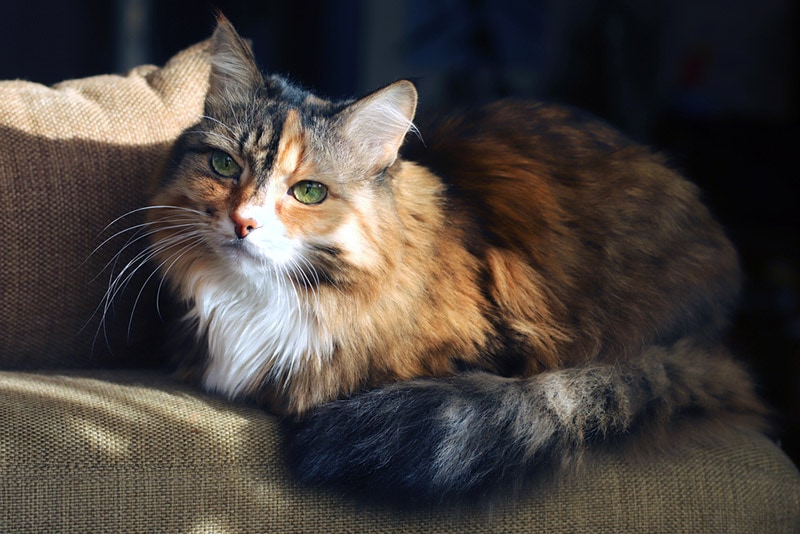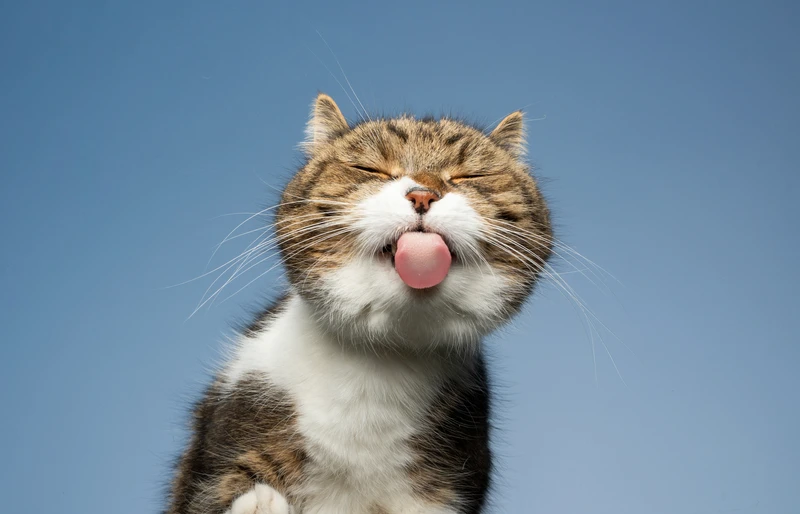Why Do Cats Purr When They Sleep? The Adorable Facts
Updated on
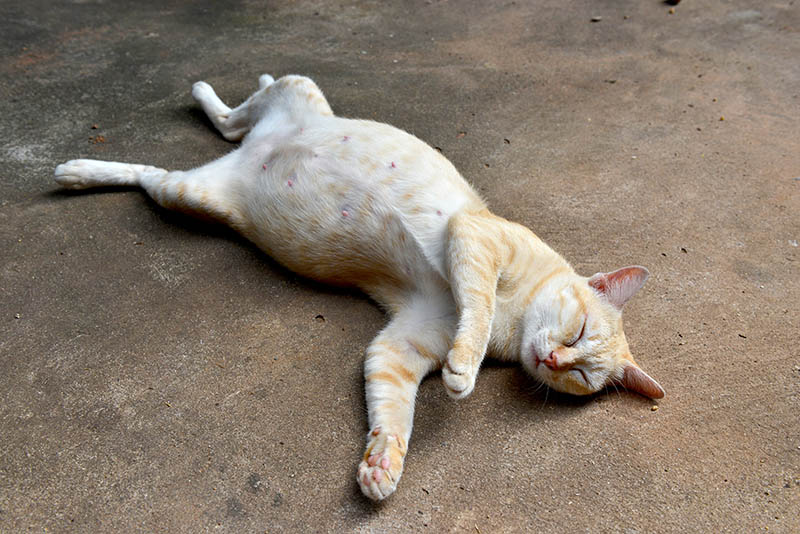
Click to Skip Ahead
We all know that cats purr when they are happy—and they usually purr when sleeping. Purring helps your cat relax and releases oxytocin, the calming chemical. Therefore, many cats will purr when they lie down and head to dreamland. Some cats will purr even when they are pretty much asleep, though cats won’t purr when sleeping deeply.
Purring requires conscious effort. Therefore, cats cannot purr when in a deep sleep. If your cat is purring, they likely aren’t asleep yet.
However, cats also purr for other reasons. Cats often purr when in pain, as it may help calm their anxiety. It functions as a natural pain reliever. Therefore, purring isn’t always a good thing. However, if your cat looks peacefully asleep and is purring, they likely aren’t in pain.
Purring is something cats do when they feel relaxed and happy—as well as when they want to feel relaxed and happy. Therefore, anxious cats may purr when trying to sleep to calm themselves. Many owners will notice that their cat may purr more after changes in the household.
Why Do Cats Stop Purring When They Fall Asleep?
Purring requires conscious effort. It isn’t something that cags do unconsciously and so when your cat goes to sleep and becomes unconscious, they can no longer purr. Cats may purr when trying to sleep, as purring helps them relax. However, once they get to sleep, these cats will stop purring.
Not all cats purr to go to sleep, and this is fine. Just like humans get to sleep differently, so do cats. Some cats may always purr when they go to sleep and purr until they are completely out. Others may only purr sometimes, and yet others may never purr when trying to go to sleep at all.
Either way, as long as you don’t notice a massive difference in your cat’s habits, you likely don’t have anything to worry about.
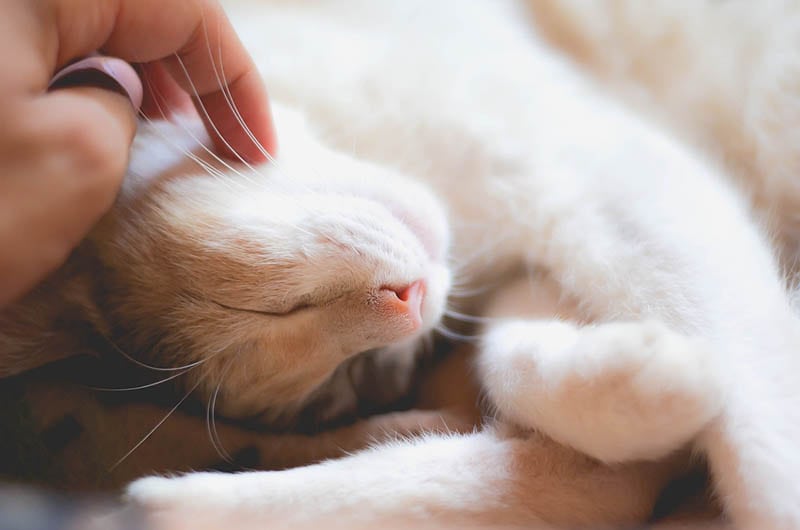
Why Does My Cat Purr When Sleeping Next to Me?
If your cat is purring when lying next to you, they are likely happy and content. However, some cats also purr to become content and relaxed. Therefore, even a stressed cat may purr when trying to go to sleep. While purring can be a good way to determine your cat’s emotional state, it shouldn’t be the only thing you pay attention to.
However, if your cat looks relaxed and comfortable, they are probably purring because they are happy. Cats purr for all sorts of reasons—not just when they are being petted. Therefore, you don’t have to touch your cat to make them purr.
Many cats will purr while laying still and not doing anything.
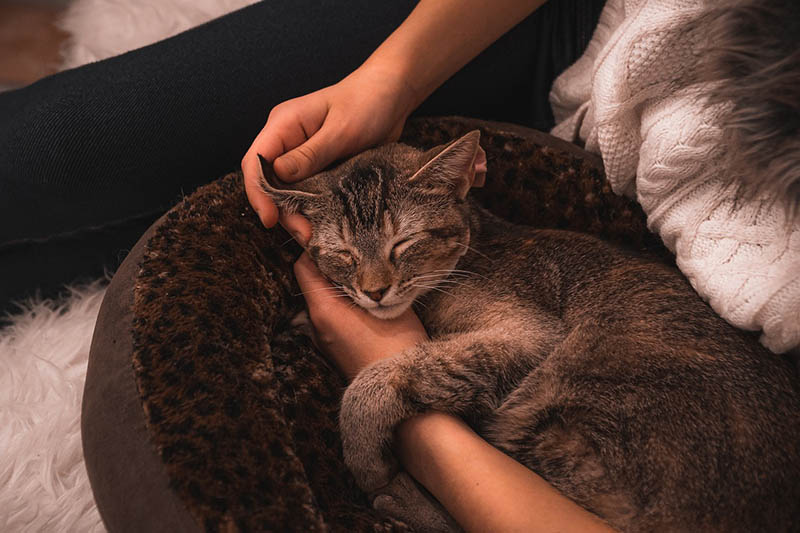
Can Cats Control Their Purring?
Yes. Purring is a conscious effort for cats. They can choose to purr. However, this can also become a bit of an unconscious effort. Just like you have automatic behaviors that are technically “conscious,” cats may automatically purr in some situations. If a cat always purrs when they are petted, they may not actively think about purring in this situation.
However, purring is a part of a cat’s conscious mind. When a cat goes to sleep, they will not purr anymore.
Furthermore, cats can purr for many different reasons. Many people know that cats purr when they are happy. However, you may also notice that they purr when in pain or stressed. In these situations, the purr is likely consciously controlled. Some cats in a lot of pain may automatically purr, though, just like a human may moan.
The moaning is technically conscious. However, many people in lots of pain will moan without realizing it.
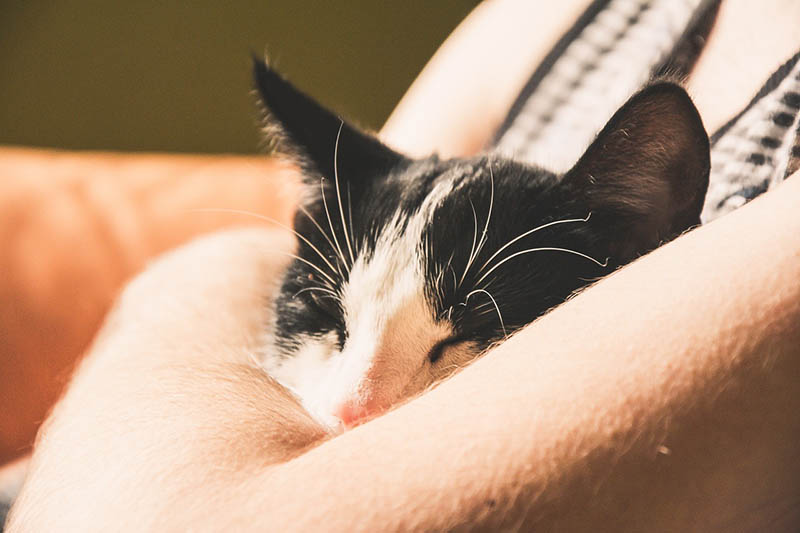
Do Cats Every Get Tired of Purring?
We don’t know how much effort purring requires from your cat. After all, we cannot speak to our cats. However, it doesn’t appear that purring requires much physical effort, as many cats will purr and purr without ceasing.
Instead, purring likely requires a similar amount of effort as breathing. Humans don’t get tired of breathing, so we can’t assume that cats get tired of purring. Furthermore, there is no evidence supporting the fact that cats get worn out from purring.
Conclusion
Cats purr when they’re sleeping because it helps them relax. Purring is often associated with relaxation for cats, and sleeping requires a deal of relaxation. Therefore, many cats will purr when relaxing, like when they first go to sleep.
However, cats cannot purr when completely asleep, as it requires conscious effort—a cat that is purring isn’t completely asleep.
Featured Image Credit: HONSIN AUPPACHAI, Shutterstock

